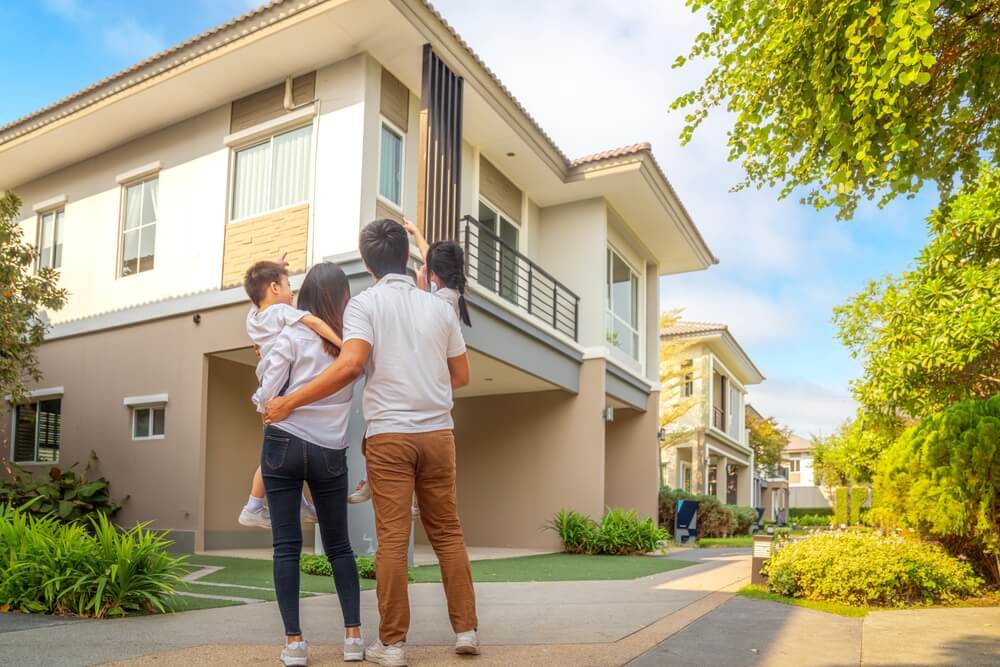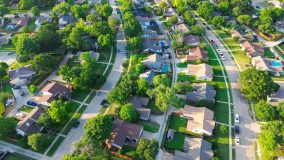How Your Home’s Location Affects Homeowners Insurance Rates
How much will you pay for a homeowners policy for your new residence? Several factors influence home insurance rates, including the age and value of your home, your claims history, and the deductible you choose. One of the biggest factors, however, is location.
Location can mean the city, state, region of the country, and even the street or zip code where your home sits. Various points of geography might affect how much you pay for your homeowners insurance premiums.
Unpacking How Location Influences Your Premium
It’s important to understand how location affects home insurance so you can try to mitigate costs.
In order to stay financially sound, insurers must take in more than they pay out. That means that homeowners insurance underwriters examine as many risk factors as they can before setting the rate you’ll pay for coverage.
Your address is among the data points they put into the pricing formula.
The Weight of Location in Home Insurance Rates
Your home can be damaged or undergo financial loss in numerous ways. It could be caused by weather damage, burglary or vandalism, fires, or other unexpected occurrences.
Underwriters determine whether such covered losses are more likely to happen based on your home address. For instance, wildfires and other natural disasters might occur in one spot on the map than another, based on terrain and weather patterns. Crime rates might be higher in one section of a city or town than in another. Proximity to floodwater might carry financial threats that are much different than if you live in a desert or high on a mountain.
Insurers also have data that shows a higher or lower likelihood of you filing a claim based on the claims activity of your neighbors. In other words, the same damage that hits many homes in a particular street or neighborhood might also threaten your residence, if it’s a weather event, street crime, or some other threat.
Breaking Down Location-Based Risk Elements
Your home is pretty much immobile. You can’t get it out of the way of danger. If a wildfire comes roaring your way, you can pack the family into the car and take off for safer ground. Your house, however, stays behind.
That’s why your home’s location can make it vulnerable to certain risks — because you can’t move it to safer ground. So, here’s some of what your home might be up against in the way of natural disasters, depending on your location.
Proximity to Water Bodies and Flood Risk
Americans love living close to the ocean, large lakes, and other bodies of water. In fact, you’re likely to pay a premium for your home if it sits in such a location. It’s often a major selling point.
The downside is that your nearby water source can flood in a storm. You’ve probably seen worst-case scenarios of this on the news, with homes literally being swept away in a rush of floodwater.
Sometimes, the threat of flooding is so severe where you live that your standard homeowners policy won’t even cover this form of loss. You must buy a separate flood policy instead. Be sure you know before you sign the contract if your target home is in a flood zone. You can find more information about flood zones and protection availability through FEMA’s National Flood Insurance Program.
Neighborhood Crime Rates and Insurance Implications
Crime is everywhere, but it is more likely to occur in some cities, neighborhoods, or streets than in others.
This is something you should investigate before buying a home. There are various online resources, including CrimeMapping.com, ADT Security, and Crime Data Explorer, that enable you to look at reported crime statistics by street or zip code. Your local police department might also have this information available.
Living in a neighborhood with higher crime rates can be a tradeoff. Your home might cost less than it would in parts of town just minutes away, but you might be required to pay more for your coverage.

The Role of Environmental Risks by Region
You don’t worry about blizzard damage if you live in Florida or wildfires if your home is in an Arizona desert. Cataclysmic weather events vary by state and region, and your homeowners insurance underwriters track the statistics. Your premiums will reflect the risks that weather events and natural disasters pose to your home based on its location.
Wildfires, Hurricanes, and Home Insurance Costs
A windstorm might peel shingles from your roof and knock around your patio furniture. Consider yourself lucky. The worst weather events can wreak devastation on your home and your life.
In some regions of the country, the threat might be wildfires, hurricanes, earthquakes, mudslides, sinkholes, or other weather events that can cause hundreds of thousands of dollars in damages or even the destruction of your dwelling.
Count on this having an impact on the rates you pay for your homeowners insurance policy. In fact, your insurer might not even offer coverage for certain disasters if they’re seen as being too common and expensive to cover. This might include coverage for hurricane damage in parts of Florida or the Gulf Coast or for wildfires in regions of California and elsewhere.
In such cases, you might have to pay very high rates for coverage or get a separate policy for added protection against that event.
Assessing the Climate Change Impact on Homeowners Insurance Rates
Climate change is causing concerns for homeowners all over the world. The melting of the polar caps causes ocean levels to rise, resulting in flooding of oceanfront areas. Droughts can increase the risk of wildfires in forested regions, and hurricanes are now more prevalent and stronger. All of this is the result of climate change.
These and other subtle — or not-so-subtle — changes in weather patterns can have devastating impacts on homes. That’s reflected in higher homeowners insurance rates in places where climate change is creating the most vulnerability.
There’s not much that you, individually, can do about this added challenge except to do business with an independent homeowners insurance agent. Independent agents have contractual relationships with multiple insurers, so they can shop for the best coverage at the most competitive rates — even in regions of the country hit hardest by climate change.
Urban vs. Rural: A Tale of Two Premiums
Are you a city dweller, or do you consider yourself a country folk? Or perhaps you prefer the ‘burbs or small-town living. There are advantages to all possible types of homesteads.
However, when it comes to homeowners insurance, the cost of your premium can increase due to very different factors. If you live in a heavily populated area, such as in the heart of a big city, the crime rate might cause rates to rise.
If you’re far from others, such as in a very small town or on a desolate farm in the Midwest, your distance from a fire department and other first responders in case of a house fire or other destructive emergency might be a reason the cost of your premium escalates.
Once again, explain your situation and ask an independent agent to find the most affordable coverage available.
Mitigating Factors and Cost Reduction Strategies
Your homeowners insurance agent wants your business. That’s why they’ll work with you to reduce your premium as much as possible if you just let them know you’re not happy with the original estimate.
If local crime rates are driving your costs up, your agent might suggest motion detectors, burglar alarms, surveillance cameras, and other smart home devices to save money on coverage and stay safe.
If you live in an area where the threat of wildfires, hurricanes, or other natural events raises coverage rates, ask an independent agent to compare costs from multiple insurers and get you the best deal possible.
There are ways to decrease your premium. Learning how bundling auto and homeowners insurance saves you money is a good place to start.
The bottom line is to never think that your only choice is to accept the cost quote you’re given. You can always look for better terms as long as you have an agent with the ability and motivation to work with you.
We’ll Help You Find the Best Coverage Option, Regardless of Your Address
Learn more about how location affects home coverage. Your independent agent at Acceptance Insurance knows all about what affects home insurance rates and can help you find the best rates available — even when your location creates obstacles.
Call us at 877-405-7102 or get a quick homeowners insurance quote online.
You can also find an Acceptance Insurance office near you to schedule a chat with one of our agents.



